Inside Medium: an attempt to bring civility to the internet
- Published
- comments
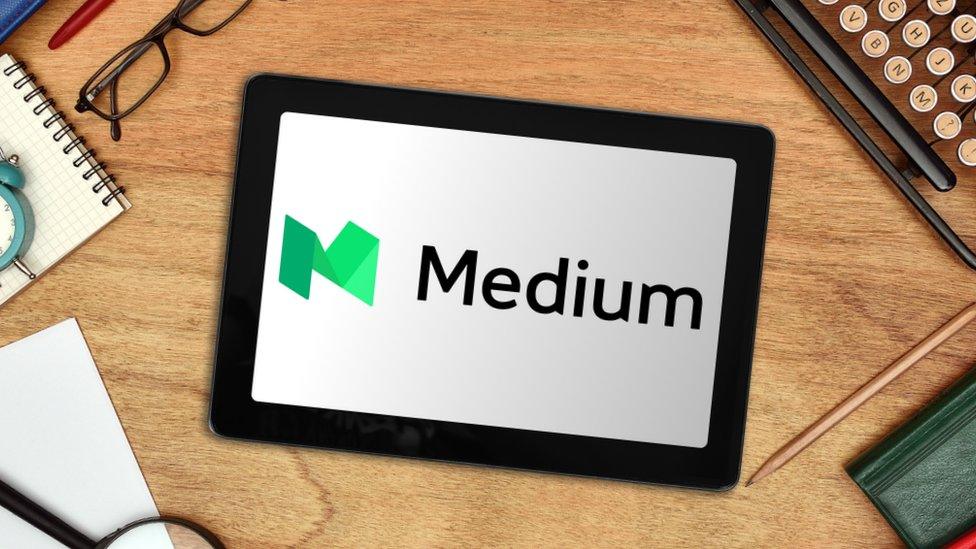
On an internet full of hurried, scruffy ballpoints, Medium is the web's fountain pen.
We're told our attention spans are short. That we cannot focus on anything beyond 140 characters, or without lists accentuated by quirky reaction gifs.
And yet Medium somehow manages to fend off this trend - encouraging the construction of a coherent argument via, primarily, long-form writing. The site is not built to reward clicks, but reads - and in doing so has fostered a different kind of community. It's almost… nice.
Almost entirely organically, Medium has become an outlet for people who already have the biggest audiences in the world. Think Bill Gates, Bono and even President Obama, who posted his State of the Union address on Medium, in full, before he delivered it to Congress.
WATCH: "People still read. All day long."
And when a high-flying Amazon exec wanted to reignite a spat with the New York Times, he did so on Medium — despite Amazon's owner, Jeff Bezos, owning the legendary Washington Post. The Times, incidentally, responded on Medium.
Why?
"What we're trying to do is create the default place to write and publish anything of substance that you want the world to see," says Evan Williams, Medium's founder and chief executive.
Williams' office, just off San Francisco's Market Street, overlooks a city full of people desperately seeking the next idea that makes it big.
Williams has had three.
First, Blogger - a platform, eventually bought by Google, that was largely responsible for bringing us the verb "to blog".
Then came Twitter, which he co-founded in 2006 along with with Jack Dorsey, Biz Stone and Noah Glass. It's a site that has become synonymous with everything that is good, bad, hilarious and miserable on the web. Its verb: "to tweet".
Medium doesn't have a verb, yet. But it is going places. At the tail-end of 2015, more than two million posts had been published - a feat that's only impressive when you consider Medium posts, on the whole, are long. Some data digging, external by the company concluded that a post that takes seven minutes to read gathers the most attention.
On the internet, seven minutes is eons.
"The truth is people still read," Williams tells me. "All day long."
Getting out of the soundbite world

More than two million posts have been published on Medium since it was launched
Right now, people are reading about politics. Several of the Presidential candidates have a presence on Medium, seeing it as a way of sharing policy beyond what they can shout during television debates.
"There's a need for more substantive thought and commentary, from whoever has to offer it," Williams says.
"We're trying to raise the level of discourse and get out of the soundbite world, for people who really care about what's going on."
Much of that commentary comes from media organisations, many of which have flocked to Medium despite having substantial web properties of their own.
Medium helps this happen: as well as a personal profile, Medium offers the creation of Publications - curated spaces that resemble homepages rather than blogs. With these, the news business is finding a captive and enthusiastic audience on Medium.
Somewhat oddly, companies usually extremely guarded about their own editorial product are simply giving it away to Medium - though that's about to change.
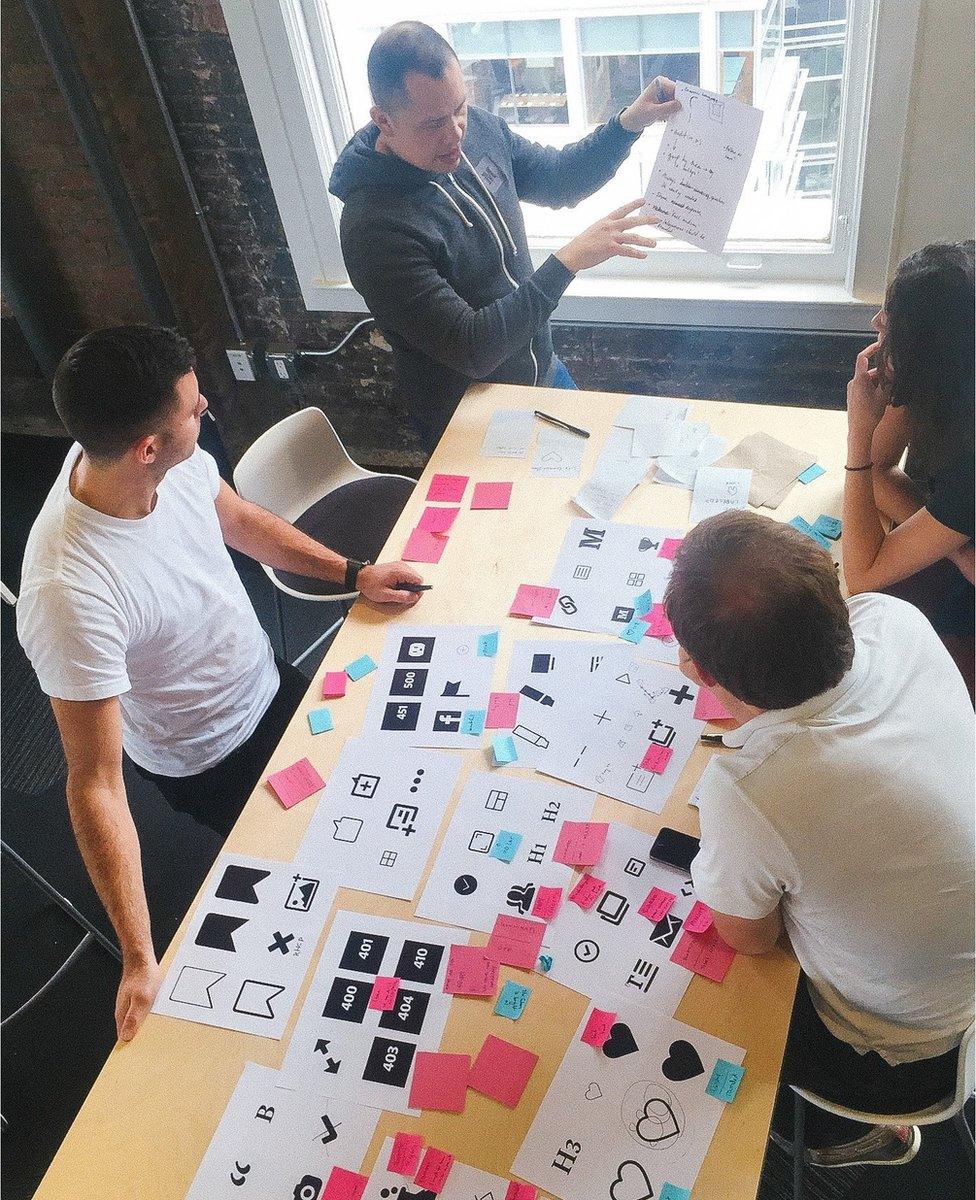
Medium is designed to keep comments polite by encouraging more considered interactions
"We're building monetisation into the product right now," says Williams, predicting a roll-out of the features within a month or so.
"We're not limiting ourselves to advertising," he says, stressing that Medium won't become a mess of banner ads but instead "sponsored" content.
"I also think there's a lot of potential for premium or subscription or even user-paid content. Some sort of paywall or membership."
While text will remain the focus, Williams is also thinking about expanding into other online content - such as video and podcasts.
Williams predicts, and is banking on, a time when it'll be largely pointless for media companies to build and maintain their own online spaces.
"I think publishers who are experimenting with Medium are seeing a world where it's not about having a website.
"There are not going to be tens of millions of websites that lots of people go to every day.
"If you're a quality journalist or content creator, I think you can find an audience, I think you can find engagement, and I think you can find money."
Judging harassment
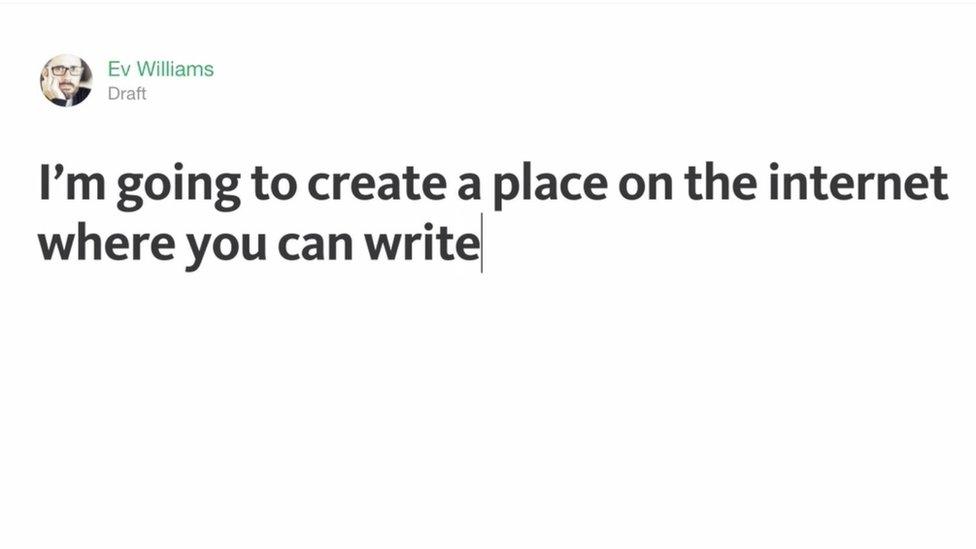
Medium was set up by Twitter co-founder Evan Williams
Last month, a story written in the Sarawak Report - one such publication hosted on Medium - alleged corruption involving the Malaysian prime minister.
After Medium's legal team refused to remove the article in question, the Malaysian government forced at least some internet service providers to block the entire Medium network.
"The post stays up," wrote Medium's legal team.
But other posts do come down.
It's a "cat and mouse" game, says Medium lawyer Alex Feerst - one where the company must keep on top of large amounts of spam and other nefarious posts.
Medium has started to develop machine-learning tools to alleviate some of the workload from a safety team that consists of just five people - two of them part-time.
What a machine can't determine, though, is what constitutes harassment. Here the team walks an almost impossible tightrope, one which Twitter already seems to be falling off as high-profile users flee.
"If someone feels that they have been a victim of something, and wants to come on Medium and expose that story, that has implications for the people that they name," explains Sarah Agudo, Medium's head of legal.
"We aren't in a position to be arbiters of what's the truth and what's right or not."
Feerst says the team discusses at length the implications of maintaining Medium as a "safe space" - a consequence of an internet that is changing.
"There was an era when people did the bare minimum and just said 'we're not taking it down, it all stays up'. That era in some ways is over, because doing the bare minimum is less than we're going to do.
"We are going to take things down that are unsafe, that are hate speech, that are harassment. It's not a legal obligation, it's an obligation to the ecosystem of the site."
But there's one massively important principle, Feerst stresses.
"You shouldn't necessarily be kept safe from other people challenging your ideas."
First-world problems
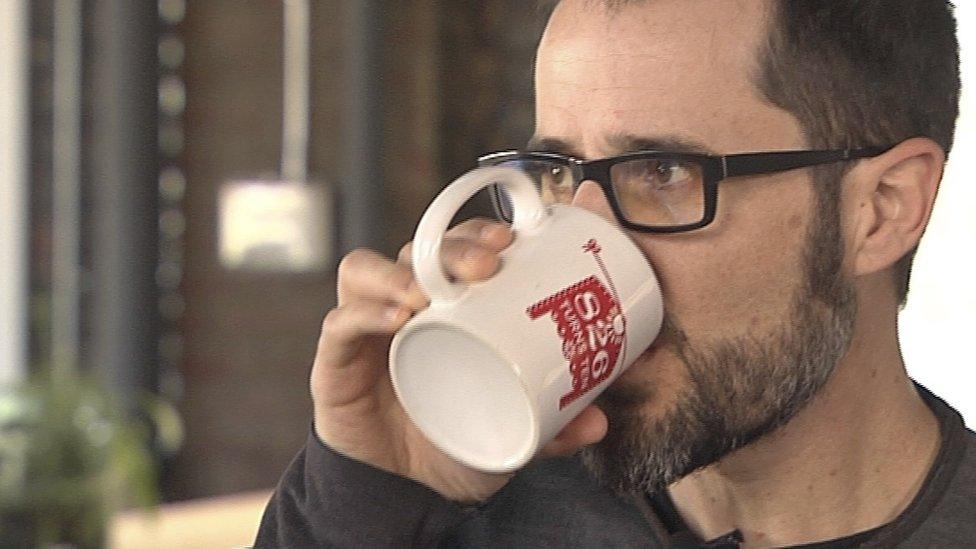
Williams acknowledges that Medium has work to do in becoming more diverse
Then again, of all the places online, Medium can sometimes seem the least likely place to be confronted with a view different to your own.
In its bid to be the home of civil conversation online, the design team has implemented several mechanisms that greatly shape the discussion on the site.
Primarily, comments and reactions from people you already know - say, because you follow them on Twitter - are given precedence over comments from people you're not connected with.
This results in huge swathes of posts that feel as though San Francisco techies are largely talking among themselves, about issues largely absent from realities beyond the US west coast.
"You should quit your job and do what you love!", the rich people queue up to write.
Medium knows this. And the design team is working on introducing dissenting, contrary views, while keeping things polite.
"We think about how can we help complement your viewpoints," says Brad Simpson, product designer.
"One of the things I care a lot about is showing a spectrum of vantage points. So we can have a shared conversation."
One feature that helps is Highlights, a method in which commenters can make points about specific passages of text. In theory, this discourages visitors from rushing to the bottom of articles to declare, in a way that's pointlessly broad, that the piece is "a load of rubbish".
But the reputation Medium has gained as an echo-chamber for the tech elite - and insufferable self-help experts - could grow into an embarrassment for the network, as Williams is well aware.
"It's more diverse than people may realise," he says.
"Just like Twitter - it started in San Francisco among people that we knew because that's how networks grow, with early adopters.
"Is it where we want to get it? Not yet. We want it to be about everything of import."
An internet utility
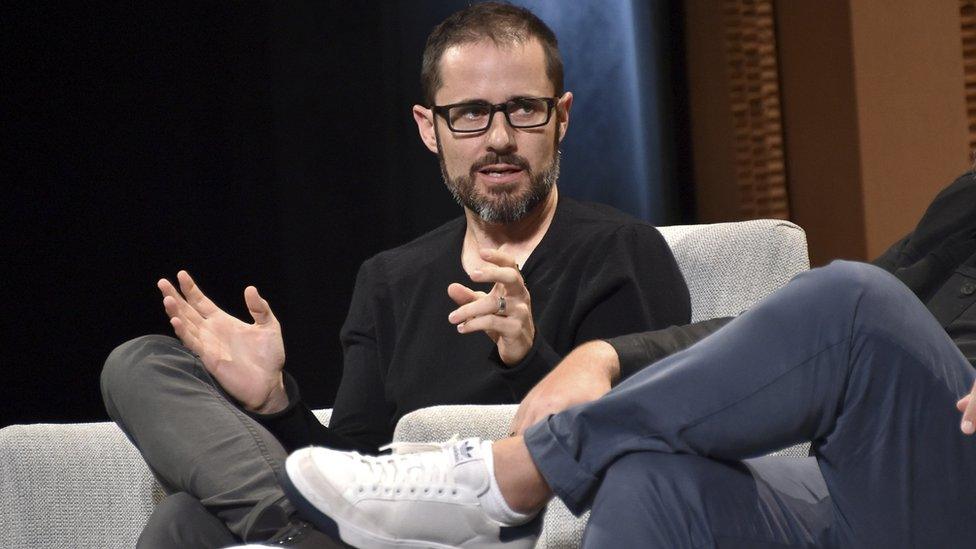
Twitter's woes are overstated by the media, Williams says
It's impossible not to compare the emergence of Medium with the rise of Twitter.
Both found popularity thanks to excitable Silicon Valley-types; both are a platform designed for free and open discussion, even if that's not always possible; and both can thrust previously unknown people under the critical gaze of millions.
They share the same street and the same co-founder. Does Williams worry about the future of beleaguered Twitter?
"The core service is healthy, it provides something that nothing else does," Williams says.
"I think being [a public company] is challenging. The biggest problem is that we need to innovate on the product side. I'm optimistic that there are big things coming for Twitter."
I ask him bluntly: is Twitter for sale?
"No. The media swings these things in extremes," he says.
Maybe it does. Maybe I am. As we end our interview I tell Williams, as many people apparently do, that I simply can't imagine an internet without Twitter humming in the background, providing the collective train of thought.
Could Medium some day come to be seen the same way? A vital internet utility, but without becoming a place too distressing for many to inhabit?
Few have done as much for free speech on the internet as Evan Williams - but even he must be daunted by what could lie ahead.
Follow Dave Lee on Twitter @DaveLeeBBC, external and on Facebook, external
- Published28 October 2015
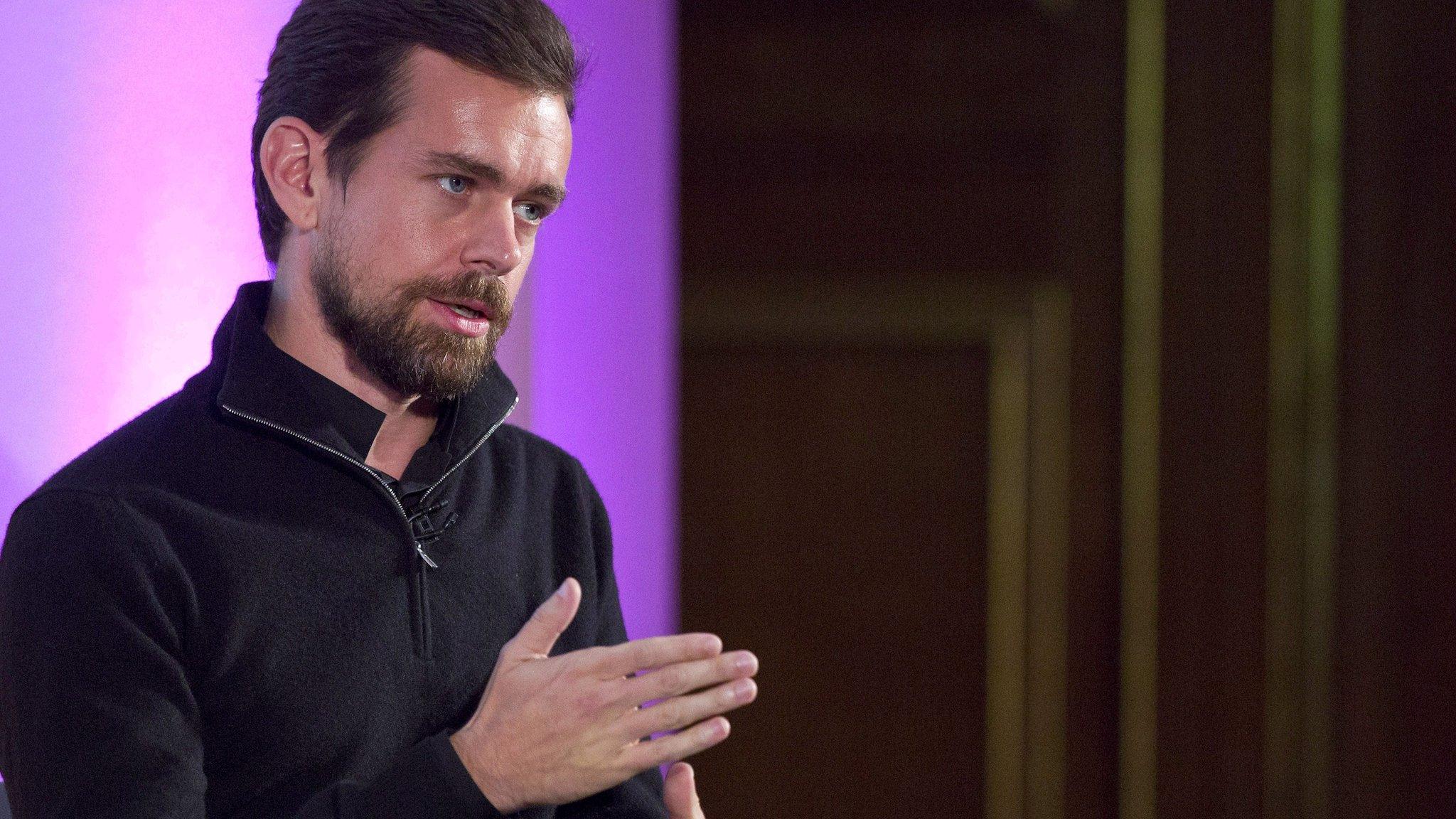
- Published4 October 2010